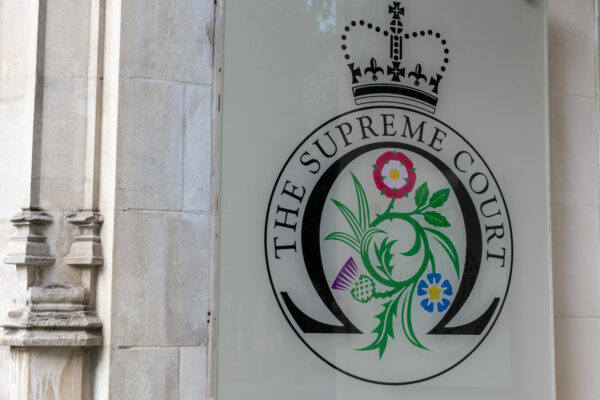Where now for litigation funding? The likely impact of the Supreme Court’s decision in R (on the application of PACCAR Inc and others) v Competition Appeal Tribunal and others [2023] UKSC 28

The likely impact of the Supreme Court’s decision in R (on the application of PACCAR Inc and others) v Competition Appeal Tribunal and others [2023] UKSC 28
The Supreme Court’s decision
The Supreme Court has today handed down its decision in the PACCAR Trucks appeal. The majority have decided that a litigation funding agreement (“LFA”) under which the funder is to receive a percentage of any damages recovered by the funded party is a damages based agreement (“DBA”) within the meaning of s58AA Courts and Legal Services Act 1990 (“CLSA”). The majority (Lords Sales, Reed, Leggatt and Stephens) found that litigation funding falls within an express definition of “claims management services”, which includes “the provision of financial services or assistance” and that those services are provided “in relation to the making of a claim”. A lengthy dissenting decision was given by Lady Rose.
The decision will have a huge impact on the litigation funding industry, commercial litigation and in particular claims in the Competition Appeal Tribunal (“CAT”) and other large group actions, many of which are supported by funders. The decision may also have important unintended consequences in light of the majority’s very wide definition of claims management services.
The decision involved a consideration of the principles of statutory construction. There are a number of interesting points in the reasoning of the majority that enabled them to come to their decision, including the relevance of uncommenced legislation. Whatever one’s views of the legal reasoning, there is no doubt that the decision is contrary to the understanding of the litigation funding industry and those who have benefitted from such funding over the last 20 years. Sir Rupert Jackson endorsed third party funding in his reports and recommended self-regulation – he does not appear to have considered an LFA to be a DBA.
The definition of claims management services is found in s4 Compensation Act 2006 in relation to DBAs before 1 April 2019 and s419A FSMA in respect of DBAs entered into after that date. The parties accepted that there was no material difference between the definitions.
The CAT and the Divisional Court had found that for a service to come within the definition of claims management services that service had to be provided within the context of the management of the claim and that funders did not normally manage a claim.
The majority of the Supreme Court were of the opinion that Parliament had provided a deliberately wide definition of claims management services so that the Secretary of State could, as and when the need arose, decide which claims management services should be regulated and provide for the regulation of the same through a Scope Order. Whilst litigation funding is not a form of regulated claims management service under the current scope orders, the section 58AA CLSA definition of a DBA extends to all those providing claims management services and is not limited to those providing regulated claims management services.
The impact of the decision
Any funding agreement that provides for a return based on a proportion of the damages recovered will be a DBA and therefore unenforceable unless it complies with s58AA CLSA and the Damages Based Agreements Regulations 2013 (“the Regulations”). It was accepted by the Respondents in the appeal that their LFAs did not comply with the Regulations and the evidence was that few if any LFAs would have complied with the Regulations since litigation funding began.
Whilst LFAs may not to date have complied with the Regulations it may be possible to draft an LFA that does comply (although in her dissenting judgment Lady Rose queried whether it would be possible). The Regulations were clearly not drafted with litigation funders in mind, but if an LFA is a DBA there should be a way of construing the Regulations to apply to an LFA.
An LFA where the return is simply a multiple of the amount invested will not be a DBA. Many LFAs have a return based on the higher of a multiple or a percentage of the recovery, whichever is the higher. In LFAs that contain an express severance clause, careful consideration will have to be given as to whether the same can be relied upon in removing the provision that provides for the percentage return. Whilst funders may decide to rely only on a return based on a multiple of their investment the multiple is likely to be set quite high in large group actions with the net result that consumers will have no idea what proportion of their damages will end up being paid to the funder.
The appeal was within the context of both opt in and opt out proceedings in the CAT. As one cannot have a DBA in opt out proceedings in the CAT (s47C(8) Competition Act 1998) opt out proceedings will not be able to be funded by an LFA that includes a return based on a percentage of the damages awarded. It is understood that all of the current opt out proceedings in the CAT, involving claims for many billions of pounds, are funded by LFAs and it is believed that these provide for a percentage return. Those LFAs will be DBAs and therefore not permitted. The Collective Proceedings Orders granted in those cases will no doubt have to be revisited, and funders, if they choose to continue funding, will have to limit their return to a multiple of their investment. The impact of the decision on claims in the CAT will be huge.
In light of the wide definition given by the majority to claims management services the decision may well have significant unintended consequences.
Issues for funders to consider
Many funders having followed the hearing of the appeal in February have taken steps to address the impact of an adverse decision. Funders will need to review their portfolios to consider what steps need to be taken in relation to existing but unresolved cases and what steps can be taken to amend the existing LFAs or replace them with new compliant LFAs. Future LFAs, including those currently in the final stages of negotiation, will have to comply with the Regulations or be based solely on a multiple so that the same will not be a DBA.
Funders will also have to consider their fully resolved cases and the risk that a funded party may seek to recover the amounts previously paid to the funder.
Whilst LFAs that provide for a percentage return will be DBAs, funders will not at this stage have been in breach of any regulatory requirements in that funding does not currently lie within the existing Scope Order. Obviously future regulation of litigation funding pursuant to a new scope order cannot be ruled out.
Issues for funded parties to consider
Funded parties are likely to be in a position where the funder will not advance any further funds until an amended or new LFA is agreed. It is therefore in the funded party’s best interests to agree the same as soon as possible in order to ensure that no undue delay is caused to the litigation.
The way forward?
This decision is in part a result of the government deciding not to introduce the draft Damages Based Agreements Regulations 2019 drafted by Professor Rachael Mulheron and Nicholas Bacon QC following a request by the Ministry of Justice for them to review the existing Regulations. Their draft regulations had expressly provided that an LFA is not a DBA.
In light of the Supreme Court’s decision, it is likely that any change would now require primary legislation. Lobbying by the Association of Litigation Funders and funders themselves is essential to bring about necessary changes to the legislation. Without permanent and retrospective solutions to the problems that this decision will cause, the UK’s position as a centre of international commercial litigation will be severely damaged.
26 July 2023
PJ and Charlotte appeared for the Road Haulage Association in the Supreme Court instructed by Backhouse Jones and Addleshaw Goddard
Disclaimer
This content is provided free of charge for information purposes only. It does not constitute legal advice and should not be relied on as such. No responsibility for the accuracy and/or correctness of the information and commentary set out in the article, or for any consequences of relying on it, is assumed or accepted by any member of Chambers or by Chambers as a whole.
Contact
Please note that we do not give legal advice on individual cases which may relate to this content other than by way of formal instruction of a member of Gatehouse Chambers. However, if you have any other queries about this content please contact:



